Final year Engineering students Showcase Innovative Major projects
The School of Engineering, in the Faculty of Engineering and Computing, University of Technology, Jamaica hosted the annual Major Project Conference from May 29-30, 2024, under the theme, “Engineering for the Future: Research and Development for the continued growth of Jamaica.” The two-day conference held at Lecture Theatre 50, Shared Facilities Building, Papine Campus, provided a pivotal platform for final year engineering students to present their innovative research projects, offering practical solutions to a variety of issues. The major projects encompassed the subject majors offered by the School of Engineering – Chemical Engineering, Civil Engineering, Electrical Engineering, Industrial Engineering and Mechanical Engineering.

Addressing the opening ceremony on May 29, Dr. Kevin Brown, President, University of Technology, Jamaica emphasized that as Jamaica’s leading STEM university, the 66-year-old institution has been consistently producing “quality engineering graduates, but we need more,” underscoring that the university is in alignment with the government’s thrust to produce more engineering graduates to build Jamaica. Dr. Brown urged the students to embrace being "lifelong learners" with a foundation of strong ethical values, noting that these qualities define a UTech, Jamaica engineer. Emphasizing that education is a continuous journey that extends beyond graduation, he further encouraged the students to constantly improve, with the confidence that “UTech has prepared you.”

Dean of the Faculty of Engineering and Computing, Professor Sean Thorpe expressed his gratitude to the leadership within the faculty and the event sponsors, acknowledging that the initiative is a “community effort.” He commended students for working assiduously to meet the timeline of the major project submission, noting that “it speaks volumes with how you treat the professionalism of the field.”
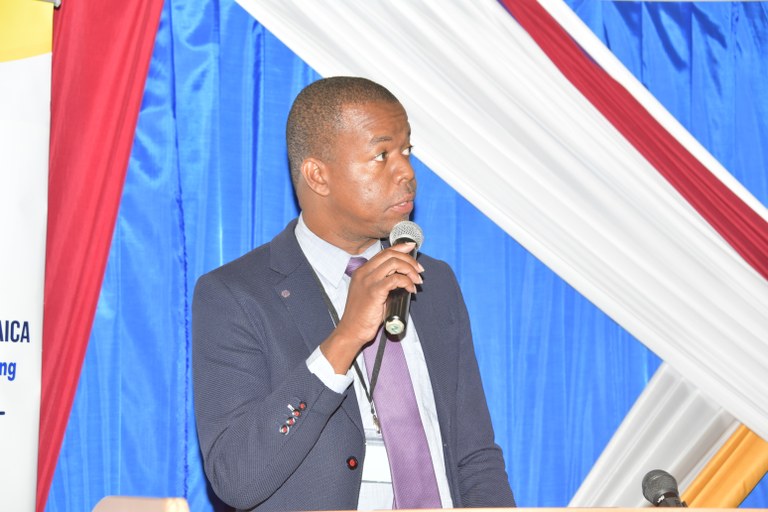
Head, School of Engineering, Mr. Oneil Josephs expressed, “this year's conference offers a wide range of solutions for water infrastructure, transportation, agriculture, energy and new industrial solutions. " Mr. Josephs highlighted that major projects undertaken by students can offer practical solutions to global issues, emphasizing to the students that, “this is the pedestal for you and the future is bright.”
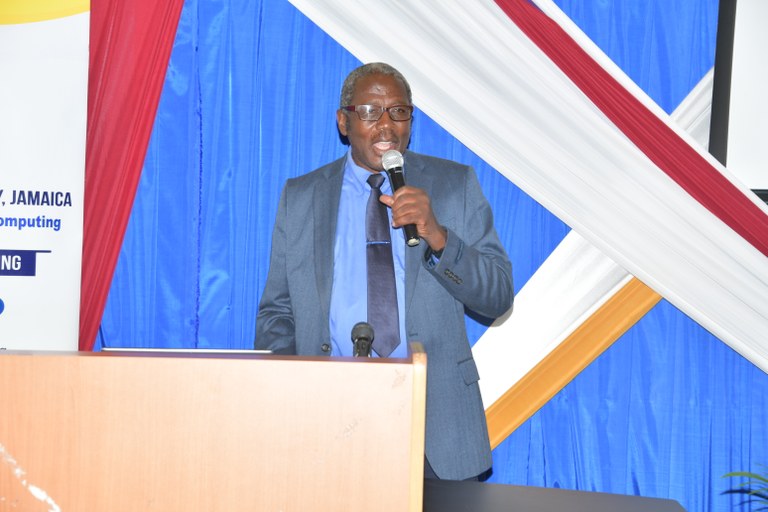
Guest Speaker and former Permanent Secretary of the Ministry of Transport and Works, Dr. Alwin Hales, acknowledged that the conference offers a chance to reflect on the progress made in engineering and engineering education. He shared, “it is a time to re-imagine the future of Engineering in a world that has become more complex, more troubled and at the same time more advanced in Science, Technology and Engineering.”
Highlights: School of Engineering major project presentations
Electrical Engineering
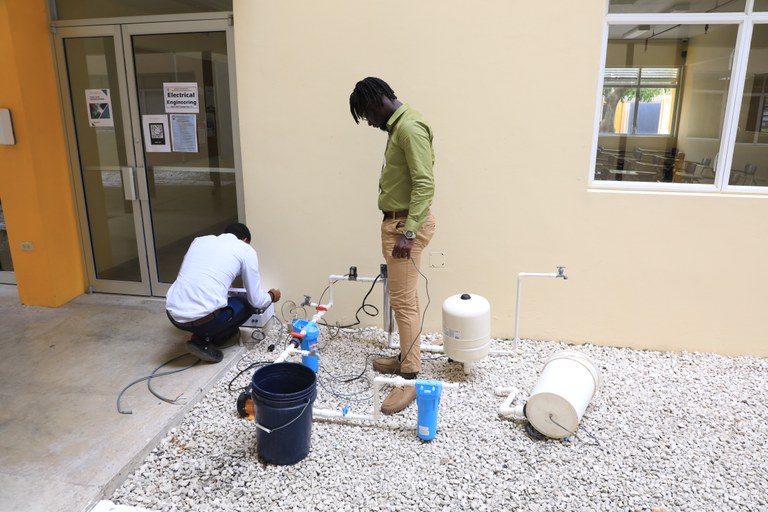
The students proposed a cost-effective water harvesting system to alleviate water scarcity in Jamaica and provide citizens with an alternative water supply option if they do not have access to a centralized potable water supply. The group noted that implementing an alternative water supply system will enhance water security by providing a reliable source of water to households and establishments. In the Caribbean region, water harvesting is commonly used to decrease dependence on centralized water systems, particularly in areas where these systems are not always dependable. Therefore, for Jamaica, a country situated near the equator, water harvesting is crucial for storing water during dry spells due to the unpredictable climate. The students added a programmable logic controller, pump, and pressure tank into the system design to improve functionality and ensure water distribution at optimal pressure levels.
They estimated that the system will cost approximately $31,000 annually to power and maintain for a five-person household. After the payback period, the team approximates that the system will save citizens approximately $158,000 annually (not considering inflation) compared to buying water from the national water commission.
Major Project: Design and Implement a Solar Energy system, with a focus on optimizing efficiency and integration with Energy storage
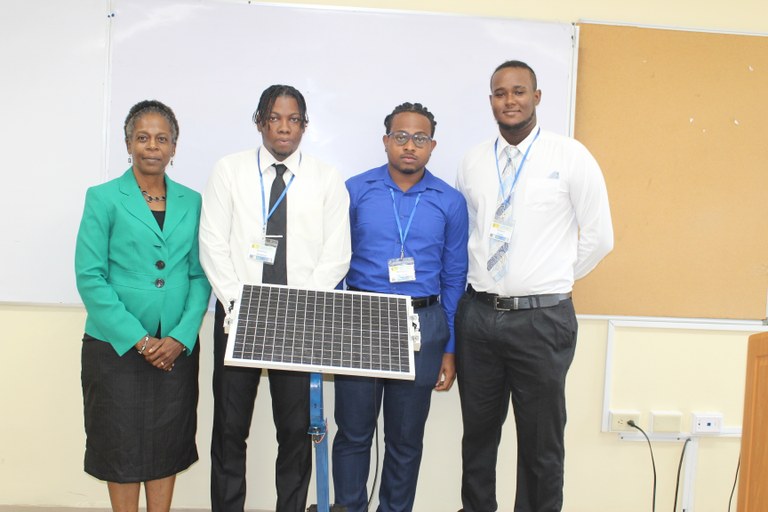
This project aimed to develop a single axis active tracking solar power system, focusing on integration with energy storage. Designed to optimize the energy harvested from solar panels by dynamically orienting them towards the sun throughout the day, the panels are always capturing the maximum solar energy and maintaining the best ray to panel frequency at any given time.
Industrial Engineering
Major Project: Business Process Engineering of four customer facing processes at a financial company through application of Industrial Engineering principle
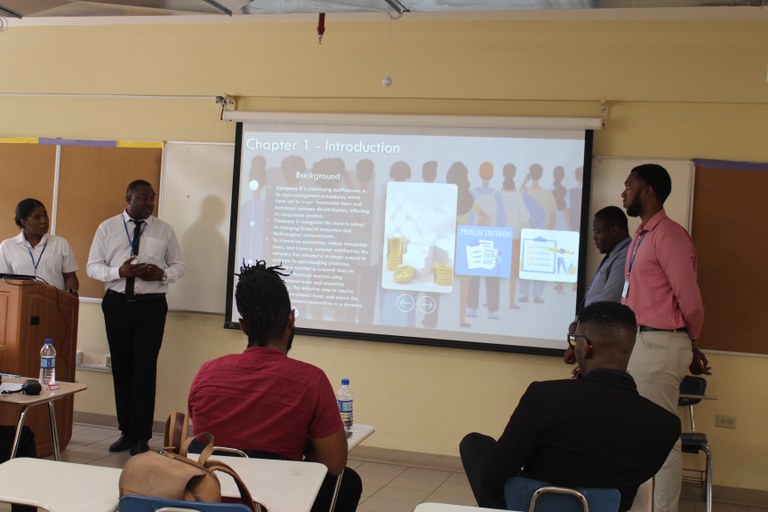
Major Project: Design of the Chassis for a Formula Student Vehicle
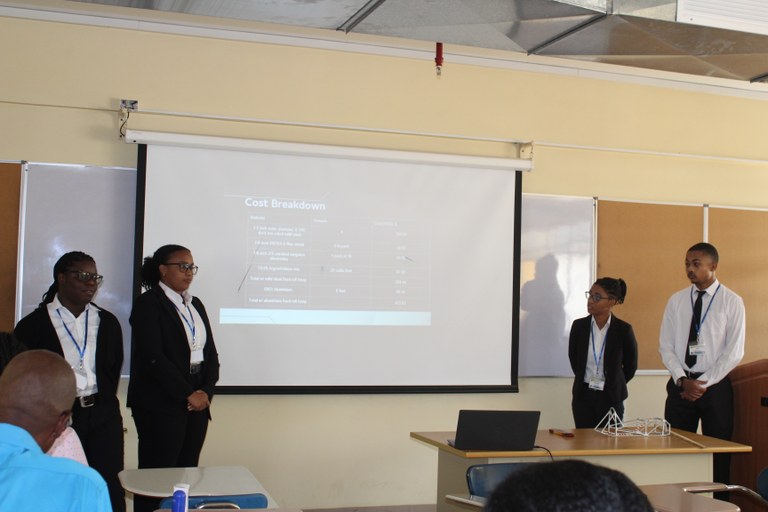
This project is meant to provide a benchmark for the students chosen to participate in the formula student racing, to design and build a chassis that is as lightweight as possible for the competition.
The students explained that to execute this project, research was conducted to determine the shape to make the chassis, the material that would be used, the fabrication process that would be used, and how the chassis would be tested. This research led the team to design a chassis with a circular arc airfoil for the top profile, and a half airfoil for the side profile. For the material, it was determined that hot-rolled mild steel would be the most feasible material due to the strength of the material relative to the required material strength stated in the 2024 formula student rules, as well as the weight and cost of mild steel.
Tungsten inert gas (TIG) welding was chosen for the fabrication process because it will allow for stronger and more reliable joints as opposed to the alternative bolted joints method mentioned in the 2024 Formula Student rules. TIG welding was chosen over other methods of welding due to its nature of allowing for more precise welds. To test the chassis, conducting simulations of the real-life tests was determined to be the best course of action based on the time and material constraints. The simulations would generate the results of a front impact test, a side impact test, a rear impact test, and a torsional test, thus giving an idea of the overall chassis strength.
Watch Recording of Day 1
Watch Recording of Day 2
- End -
Contact:
Michelle A. Beckford (Mrs.)
Corporate Communications Manager
Corporate Communications Unit
Advancement Division
University of Technology, Jamaica
237 Old Hope Road, Kingston 6, Jamaica
Tel: (876) 970-5299; 927-1680-8 Ext. 2299
Email: mbeckford@utech.edu.jm
